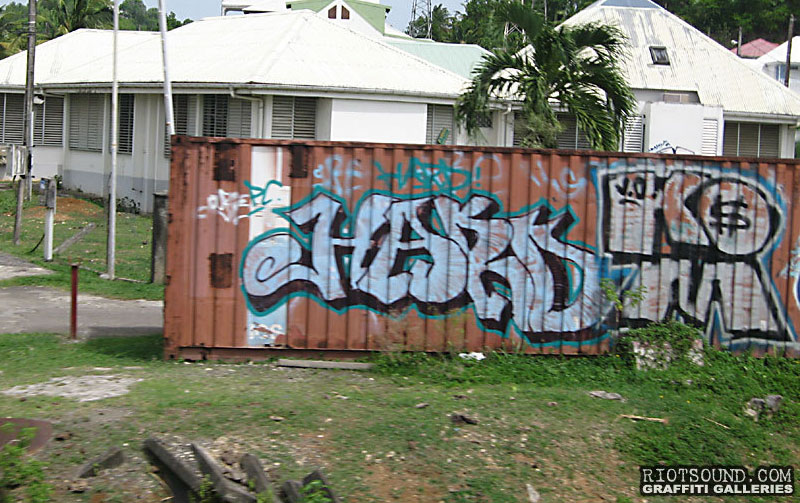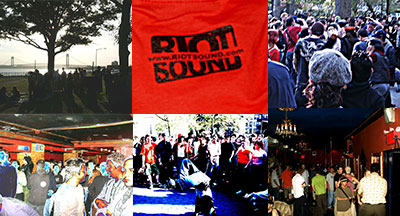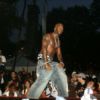by Alex Shtaerman
By crafting, not to mention producing, one of the best Hip-Hop songs to be released this year in “Constance”, a chilling tale of child prostitution in the Philippines (accompanied by an equally gripping video), Mr. J. Medeiros has catapulted himself onto the radar screens of nearly every avid Hip-Hop fan from L.A. to NYC and beyond. Thoughtful, opinionated and engaging, Mr. J’s first endeavor as a solo artist outside of his group, The Procussions, is already proving to be a groundbreaking effort, gaining momentum despite a seemingly endless supply of cliché rhymes offered up his ‘bling bling” contemporaries. Also fueled in part by the adrenaline rush single “Keep Pace”, Mr. J’s debut LP, Of Gods And Girls, blends classic Hip-Hop production with occasional hard rock overtones and a sprinkling of distinct samples, producing a unique musical soundscape that addresses a variety of topics most MCs today dare not touch. The album, Of Gods And Girls, is dropping July 24th! Now check out the interview with a man who, simply put, is keeping Hip-Hop alive.
RIOTSOUND.COM: You’ve been writing and putting together concepts for Of Gods And Girls for some time now. You started writing for the album at a time when financially you were not in the best situation and your future was perhaps not as clear as it might be today. As your situation improved and The Procussions got signed to Rawkus, how did that impact the general mood and subject matter of the record? Did you, in a sense, go from a more dark feel to a somewhat more optimistic outlook with some of the songs you were writing as your own personal situation evolved, or did the concept for Of Gods And Girls basically stay the same over time?
MR. J. MEDEIROS: Well, the concept of the album basically [stayed] the same. The reason being, though things got better – [part of] the idea behind the album is trying to get past even the financial [mindset]. That’s the idea of the title of the album Of Gods And Girls [as far as], what is it that we make Gods out of? [In the initial stages of writing the album] I was thinking because I was in a horrible financial state and a lot of other things had happened in my life, that was the reason of my sorrow or that was the reason that I felt either insecure or I felt that I couldn’t make it, you know, things like that. But the truth was that it was all a product of thought, it wasn’t a product of actual being. Because the poorest person in the U.S. still doesn’t exactly compare to being over in Darfur, Sudan or being in other similar places around the world. So I think it was all a product of thought.
I think the general idea of the album was to get over the thought patterns that we get caught in that make us feel either unworthy or make us feel doubtful, or essentially, in the very end, make you stop following your dream. Whether it’s out of worry or whether it’s out of fear or whether it’s out of some necessity that you created in your mind that you believe that you actually need. Also when you [put yourself in] a place where you’re fearful, in my opinion you get into a position where you have a hard time creating priorities for yourself. You put your most fearful need up front. You see that in society and you see that in the world we live in. People have an extreme amount of fear of being broke and they have a fear of not eating and even in the state that we live in, where there are opportunities to get jobs, you still find people dedicating their entire life to not even just to eat anymore but to really really eat A LOT A LOT and to just have a lot of money stacked up. And you realize – wow, all you’ve done is collect money and you really haven’t had a chance to look into you dreams. And I think that’s what Of Gods And Girls is about, what we make Gods of in our own life.
You hear on the album to me [referring] to my Wells Fargo [bank account] and that stuff was real and that actually wasn’t really even the worst of it. That was actually while I was recording the album; I was in the studio and I called Wells Fargo and I was $280.00 overdrawn. At that time I also got evicted from my apartment, I didn’t have a car and I was just living on friends’ couches for a year. But I don’t think it’s necessarily important that I look at that as being poor because [of some of the things I saw] when I was working in the AmeriCorps. You can even look at it in the United States, you could look at places in the Appalachian Mountains and you look at places in the inner cities. Even where I live now in East Los Angeles people live a certain way daily and it’s not for a dream but it’s for survival. So I feel very blessed that I was able to just focus on the music.
Plus, [with The Procussions], we were on our own label before we came out so we kinda knew the ins and outs of what a record label was and what it really means. Even though we signed to Rawkus, it wasn’t all smiles and cheers. We were very happy and very proud to be on Rawkus but we knew the business involved, we knew what we were getting into and we didn’t see it as a white horse, like someone coming in and saving The Procussions’ day. We just knew it was just another step we needed to take.
RIOTSOUND.COM: You’ve personally done a lot of volunteer work with organizations such as AmeriCorps as well as Habitat For Humanity. You’ve also worked with people with developmental disabilities. So you don’t just talk the talk, you actually walk the walk when it comes to some of the subject matter in your music. How did you initially get drawn into volunteer work and also, how has it inspired your music?
MR. J. MEDEIROS: You know what man, I really don’t know [what drew me to it]. It’s something that I had since I was young and really don’t know why I have a heart for those things and continue to have a heart for it. I don’t know. I think maybe everyone has a heart for it but they just need the proper environment to draw that person out. I think I was in a proper environment at a young age because, my mother, she worked hard. She worked like 80 hours a week. She was working two or three jobs just so I could be brought up. She was always very adamant about me looking towards people who are in the struggle and seeing that as part of my community. Like, you’re in the struggle and these are your people and this is our community.
You know, I never looked to be rich and my mother just looked to survive. I think as far as the music, it’s because I had no other options. When I first got into AmeriCorps I was 21 years old. Prior to that I had a four year stint where I was just a battle MC. I was winning competitions in Colorado, you know, as big as that can be [laughs], in Denver and citywide. I was just tearing down people and that was cool, I loved it and I loved being able to show off [my skills]. But then when I started getting involved in seeing people’s lives, I really couldn’t rap after that and not say anything about it. So it’s important and I think it’s important for Hip-Hop because of its musical foundation. It’s basically [like] a speech; it’s lyrics over a drum pattern, it’s the best [medium] of getting any word out – I think it’s through Hip-Hop music. [Hip-Hop] is a mix between Shakespeare, Malcolm X, Martin Luther King, its incredible man. So I think that was my best avenue to really try to raise awareness about certain things that I was witness to.
RIOTSOUND.COM: One of the things you talk about in your music is the lack of equality between the sexes, which of course is a very important topic and especially in Hip-Hop. I was watching something on TV recently where Chuck D was in a way explaining the origin of the inequality in Hip-Hop by saying that in the ‘70’s with Soul & R&B, you had a lot of Black women talking directly to other Black women, while Black men didn’t necessarily have that, at least as far as music goes. When Hip-Hop came out, it was basically Black men talking directly to other Black men. So from the get go, Hip-Hop was in a sense “man’s music”. Fast forward to present day, what can we do to alter the course of history? Do you think artists like yourself coming out and standing up for women in a real way is an important step that Hip-Hop needs to take at this juncture?
MR. J. MEDEIROS: I think one of the most important things – I understand where origins come from – hell, I mean our origins at one time were throwing rocks at each other and eating raw meat. But I think [over time] you do evolve and I think the most important thing in creating a social change within Hip-Hop is to change the way that men associate with each other. Because this is not a man talking about women’s rights, this is a man talking about men, and that’s the important thing. It is a man run music, it is a man’s genre and I think there comes a time to redefine man. Not necessary do handouts for women, women can take care of themselves. It’s not a handout for them like saying – hey, we gotta make room for these guys, we gotta make it safe for them. No, we got to redefine ourselves!
Because for [many] men, where they’re at is truly not a safe place to be mentally. That is not in the essence of man to be misogynistic. We are stronger physically [than women] but that should come with a certain amount of respect, restraint and discipline. I mean, that’s where a man draws his integrity from. So I think it’s actually bringing integrity back to men, so that men can speak to other men. I think this whole thing is more of a man thing for me than it is a women thing. It’s about redefining men and redefining the way that we view women.
RIOTSOUND.COM: This may sound like a strange question but I think there might be an important insight here. In your music you really don’t have too much of a criminal element present. In the past, it seems like even a lot of the classic golden era Hip-Hop acts had a criminal element to their music – in other words there was a sense of “take this advice from me because I used to be a real bad guy and I learned from it, so you can too” – but if you’re just an intelligent voice giving guidance without the backdrop of a criminal past, it seems that sometimes, even with great music, the message has fallen on deaf ears. How do you see that dynamic? And personally, with regard to your music, do you think it is something that can become an issue?
MR. J. MEDEIROS: The truth about it all is I grew up with my family having to go to the Salvation Army to get basic needs. I grew up in Providence, Rhode Island near Chad Brown projects. I used to sleep on the floor with my mother and my sister on one mattress. I’m missing teeth from being jumped with brass knuckles. The first time I held a gun I was nine years old. I also had a sawed off shotgun from my brother. I’ve seen three people be shot – I had a friend who was murdered…
RIOTSOUND.COM: So you choose not to put that kind of content in your music…
MR. J. MEDEIROS: Right, because unfortunately – I agree with you 100% – it’s all in this idea of street cred. But the problem I believe that is happening in Hip-Hop music is that’s just an excuse. The excuse of street cred is really to glorify it so that you are still living out this gangster attitude like – yo, I don’t do that anymore, but I am. The problem is, like I was saying about women, its redefining man. It’s actually coming through and saying – I’m not gonna use the street cred line in order to get people interested because that’s just [one of] the formulas that we’ve created. You end up really just focusing on those criminal elements, and people, you know, they love [the idea] to live that out.
The other half of my life I was in the suburbs so I know what it’s like to have crowds and crowds of white people listening to N.W.A with the windows down and saying every word including “nigga” five times and never having held a gun [or lived that lifestyle]. And even though N.W.A comes from a point like, yo, this is street life, and [that music] did serve in those days in creating a balance between what was going on. You had Hip-Hop people dancing and people having pajama jams on and all this stuff but then you had these guys who came from Los Angeles talking about street life. And yes, it was a bit glorified and maybe that’s because they were really in it and they lacked a certain education to be able to balance it. But the Hip-Hop media [at that time] created a balance where people would be able to get both [sides].
I think now in Hip-Hop there is no balance anymore, there is only one side. You have to have this street cred or criminal element in order to come up. And I think [it should be] part of a bigger plan to redefine man and that street cred isn’t a part of giving you worth or integrity anymore. [It should] really be about having a heart and just having your eyes focused on an issue. There are a lot of well educated and uneducated people out there who don’t rely on their criminal side in order to get other people interested in them. They rely on their mind and their heart.
RIOTSOUND.COM: On your new single “Keep Pace”, as an MC you seem to draw on a lot of different elements. The song has an old school boom bap meets drum ‘n’ bass meets Rage Against The Machine feel to it, the freshness of it all is very apparent. What were you thinking of when you wrote and recorded that track?
MR. J. MEDEIROS: I actually produced that track. I produced four or five tracks on the album and I really have a lot of energy so I always try to make tracks that are equivalent to the amount of energy I want to put on there. I can’t tell you where the sample came from [laughs] ‘cause I think [the person who sang it] is going to get angry at me. I tried to get her to actually really sing on the album and she said “no” so I tried sampling a [little part] where she didn’t know it was her [laughs]. So hopefully she won’t find out. But I think I’m inspired by all those elements so it comes out. I focus on energy in both music and performance and not necessarily in what way it should look like. So if it sounds drum ‘n’ bass, then that’s what it sounds like. But at the end of the day I feel like I grew up listening to Hip-Hop so whatever I do, God willing, will sound Hip-Hop, period.
RIOTSOUND.COM: I was more so saying it in a positive way since the track sounds so fresh and up-tempo while still retaining that classic boom bap feel. I actually really enjoyed all the different elements coming together in such a fluid and distinct manner.
MR. J. MEDEIROS: Well, thank you man. I think what I’m trying to do is I want people to feel the way I feel when I have the concept for a song and then I do the song. I fit the melodies and the rhythms and the ideas to fit the subject matter because I know that’s a “dance” between the lyricist and the music and I want people to be able to feel what I feel. And I don’t know if I’m pulling it off, I really hope that I am. When I hear a certain track it puts me in a spot that opens me up to the content [of a song]. And that’s what I want to do; I want to open people up to the content. So give them the boom bap, the part that’s aggressive and then also give them that melodic voice and that singing that’s really putting you in a place where you’re able to hear the message [of the song] of running from this temptation of being self-destructive.
RIOTSOUND.COM: Growing up and developing your style as an MC, who were some of the artists that you really looked up to and respected?
MR. J. MEDEIROS: I really love Chuck D and I don’t know whether it was because of the lyricism – I think it was because of this whole presence that he had. He looked like he could be your uncle or you dad and he was Hip-Hop. He came across like a father [figure] in Hip-Hop and I think that was really respectable and hard to find. I also love Zack de la Rocha [from Rage Against The Machine]. I love his passion and the way he’s able to say things. I try to draw from a lot of people. I think it’s a habit of mine to listen to a lot of things and then see what fits me and what I enjoy out of it and then try to exploit that part of myself within me.
RIOTSOUND.COM: What’s the most important thing that some fans might not know about you yet that you feel they absolutely need to know?
MR. J. MEDEIROS: Wow man, I don’t know, I don’t know how I come across. I’ve been living in Los Angeles for five or six years and there’s a lot of Hollywood stuff that goes on here. There’s a whole bunch of ideas about hype and how to build hype. Really, it’s formulaic, like – here, this is how you do this. I had one time where my manager – actually a bunch of people have said this before like – yo man, you shouldn’t be hanging out in front of the stage before you go on, you shouldn’t be hanging around the merchandise booth, just go in, sign a couple of autographs and leave; we’re gonna take you to the hotel and we’ll bring you back when you go on and then we’re gonna leave. [And me], I try to reply to everybody who tries to hit me up on MySpace. Some people think that’s a bad idea. I reply to all my emails, I’ve given free beats away.
I think what people need to know is that I’m not going to play into the fame thing. I just can’t do it. I did try and admittedly and unfortunately I did try that for a couple of years, to be exclusive. [In the end] you end up just being an asshole and to me personally, it doesn’t matter how many fans you get. How real is that fanbase? It’s like in a relationship where you’re playing games to get another person. Once you play the game and once you got ‘em, it’s like, what do you have left? There’s no substance. All it was is this big huge mind maze. And I’m not trying to put fans or people who are interested in my music into that. I try to be a real person. And besides, I can’t hide it, I hate hanging out at the hotel, it’s boring, and I hate hanging out back stage, it’s boring. I like to go out and meet people, talk with people, go out for lunch or an early breakfast after a show. Who cares? If that means it makes me less exclusive or less famous, then freakin’ so be it. Because this is my life, I do this 24 hours a day and I’m not going to do it being somebody that I’m not. It’s just a waste of time then.
RIOTSOUND.COM: You got the album Of Gods and Girls dropping, what else should fans be looking out for as far as Mr. J. Medeiros goes?
MR. J. MEDEIROS: Man, I’m already ten songs deep in another album that’s totally and completely produced by Stro from The Procussions. It’s really heavy. The Procussions are also working on a new album now that I’m very excited about. Stro got like a ton of new equipment. We got a ton of live stuff now and I really think it’s going to form into something different. And then I’m also working with my brother who has a hardcore band and I’m going to be putting out kind of a side project, a more heavier rock project. Also we’re trying to put out a bunch of other stuff, some mixtapes. I think we have a lot of cool collabs coming up on this album that I’m doing now. So, I’m excited, I’ve never been able to spark a solo career. I’ve been in The Procussions for nine or ten years and there’s some things that I want to say that there really isn’t a ton of room to say in The Procussions, so I’m excited about this next year.
For more news and info on Mr. J. Medeiros, check out www.MySpace.com/MrJMedeiros

































Comments